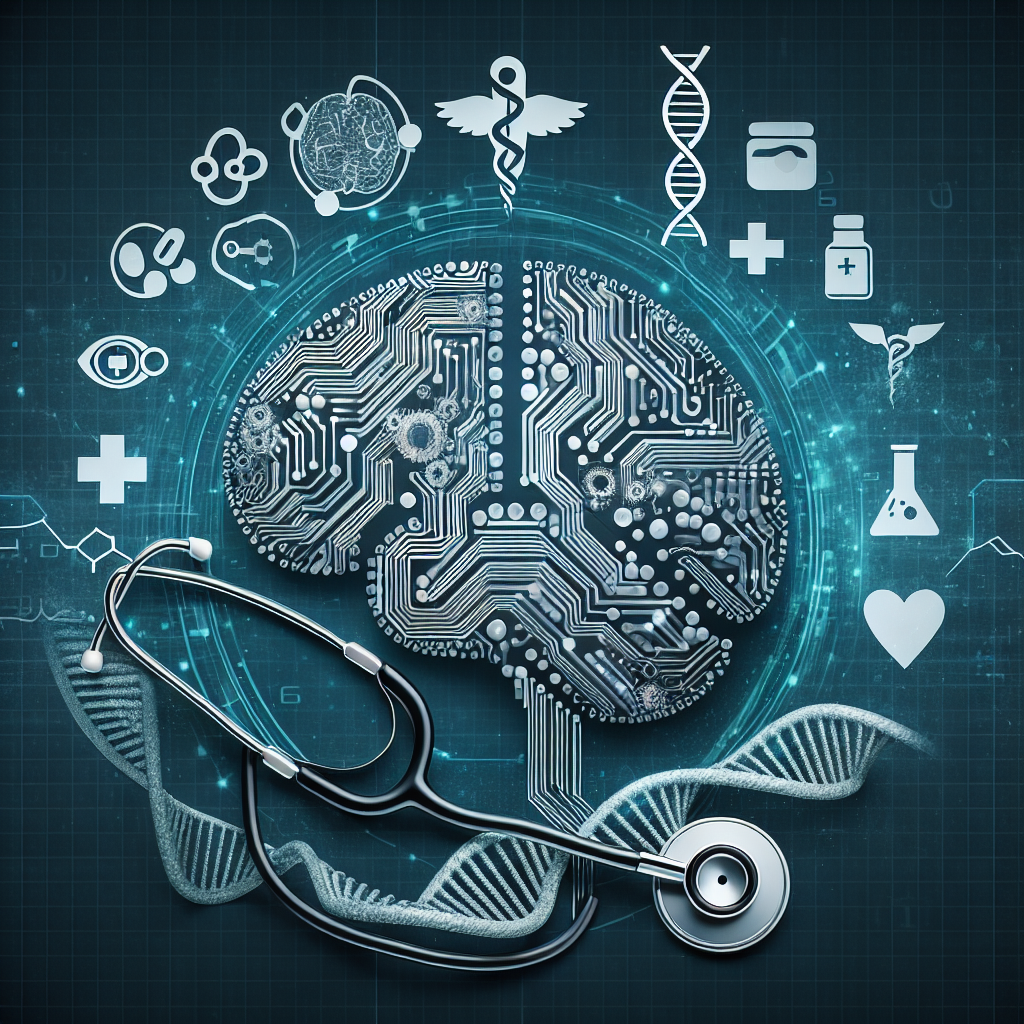The Future of AI in Healthcare Technology
Artificial Intelligence (AI) is revolutionizing the healthcare industry, offering new and innovative ways to improve patient care, streamline operations, and enhance overall efficiency. From diagnosing diseases to predicting outcomes, AI is transforming the way healthcare is delivered and managed. In this article, we will explore the future of AI in healthcare technology and its potential impact on the industry.
AI in Healthcare Today
AI has already made significant strides in healthcare, with a wide range of applications that are improving patient outcomes and driving operational efficiencies. Some of the key areas where AI is making an impact include:
1. Diagnostics: AI-powered algorithms are being used to analyze medical images, such as X-rays, MRIs, and CT scans, to detect abnormalities and diagnose diseases with greater accuracy and speed than human radiologists.
2. Personalized medicine: AI is enabling healthcare providers to tailor treatment plans to individual patients based on their genetic makeup, medical history, and lifestyle factors, leading to more effective and personalized care.
3. Predictive analytics: AI algorithms are being used to analyze large datasets of patient information to predict disease outcomes, identify high-risk patients, and optimize treatment strategies.
4. Virtual health assistants: AI-powered chatbots and virtual assistants are being used to provide patients with personalized health information, schedule appointments, and answer medical questions, improving access to care and patient engagement.
5. Administrative tasks: AI is automating repetitive administrative tasks, such as billing and coding, scheduling, and patient data entry, freeing up healthcare professionals to focus on patient care.
The Future of AI in Healthcare
As AI continues to advance, its potential to transform healthcare is only expected to grow. Some of the key trends shaping the future of AI in healthcare technology include:
1. Improved diagnostics and precision medicine: AI algorithms will become even more sophisticated, enabling more accurate and precise diagnoses, as well as personalized treatment plans tailored to individual patients.
2. Enhanced patient engagement: AI-powered virtual assistants and chatbots will become more intelligent and intuitive, providing patients with personalized health information, reminders, and support to help them manage their health more effectively.
3. Predictive analytics and population health management: AI will play a key role in predicting disease outbreaks, identifying high-risk populations, and optimizing healthcare delivery to improve population health outcomes.
4. Robotics and automation: AI-powered robots will be used to assist with surgeries, deliver medications, and perform other tasks that require precision and accuracy, reducing the risk of human error and improving patient safety.
5. Drug discovery and development: AI algorithms will be used to analyze large datasets of genetic and molecular data to identify new drug targets, accelerate drug discovery, and optimize treatment regimens.
6. Remote monitoring and telemedicine: AI-powered devices and sensors will enable remote monitoring of patients, allowing healthcare providers to track vital signs, detect early warning signs of disease, and provide timely interventions, especially in rural or underserved areas.
7. Ethical and regulatory considerations: As AI becomes more integrated into healthcare, there will be a growing need to address ethical and regulatory challenges, such as patient privacy, data security, and transparency in AI decision-making.
Frequently Asked Questions (FAQs)
Q: Will AI replace healthcare professionals?
A: While AI has the potential to automate certain tasks and improve efficiency in healthcare, it is unlikely to replace healthcare professionals entirely. Instead, AI will complement the work of healthcare providers, enabling them to focus on more complex and critical aspects of patient care.
Q: How will AI affect patient privacy and data security?
A: AI technologies raise important concerns about patient privacy and data security, as they rely on access to large amounts of sensitive health information. Healthcare organizations must implement robust data protection measures, such as encryption, access controls, and data anonymization, to safeguard patient data and comply with regulatory requirements.
Q: What are the ethical considerations of using AI in healthcare?
A: The use of AI in healthcare raises ethical considerations related to patient consent, transparency in decision-making, and accountability for AI algorithms. Healthcare organizations must ensure that AI technologies are used ethically and responsibly, with a focus on patient safety, privacy, and trust.
Q: How can healthcare professionals prepare for the future of AI in healthcare?
A: Healthcare professionals can prepare for the future of AI in healthcare by staying informed about the latest AI technologies and trends, participating in training programs and continuing education opportunities, and collaborating with AI experts and data scientists to leverage AI tools in their practice.
Q: What are the potential benefits of AI in healthcare?
A: AI has the potential to improve patient outcomes, enhance diagnostic accuracy, optimize treatment plans, reduce healthcare costs, and increase operational efficiency in healthcare organizations. By harnessing the power of AI, healthcare providers can deliver higher-quality care to patients and improve the overall healthcare experience.
In conclusion, the future of AI in healthcare technology is bright, with the potential to transform the industry in profound ways. By harnessing the power of AI to improve diagnostics, personalize medicine, enhance patient engagement, and drive operational efficiencies, healthcare organizations can deliver better, more efficient care to patients and improve population health outcomes. However, it is important for healthcare professionals, policymakers, and industry stakeholders to address ethical, regulatory, and privacy considerations to ensure that AI technologies are used responsibly and ethically. As AI continues to advance, its impact on healthcare is likely to be transformative, ushering in a new era of innovation and improved patient care.

